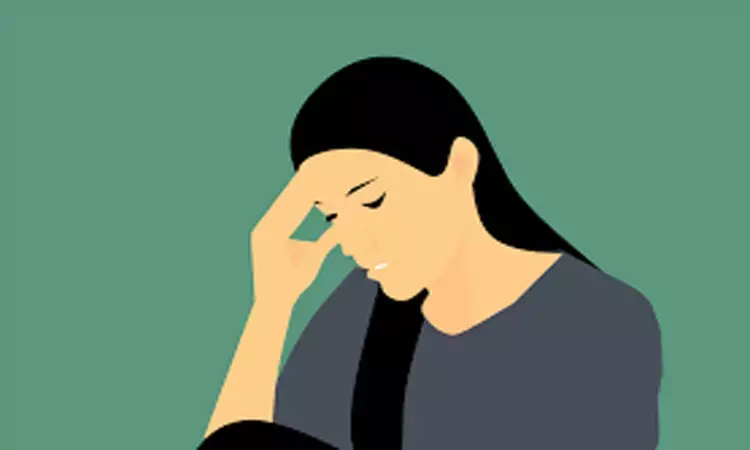- Home
- Medical news & Guidelines
- Anesthesiology
- Cardiology and CTVS
- Critical Care
- Dentistry
- Dermatology
- Diabetes and Endocrinology
- ENT
- Gastroenterology
- Medicine
- Nephrology
- Neurology
- Obstretics-Gynaecology
- Oncology
- Ophthalmology
- Orthopaedics
- Pediatrics-Neonatology
- Psychiatry
- Pulmonology
- Radiology
- Surgery
- Urology
- Laboratory Medicine
- Diet
- Nursing
- Paramedical
- Physiotherapy
- Health news
- Fact Check
- Bone Health Fact Check
- Brain Health Fact Check
- Cancer Related Fact Check
- Child Care Fact Check
- Dental and oral health fact check
- Diabetes and metabolic health fact check
- Diet and Nutrition Fact Check
- Eye and ENT Care Fact Check
- Fitness fact check
- Gut health fact check
- Heart health fact check
- Kidney health fact check
- Medical education fact check
- Men's health fact check
- Respiratory fact check
- Skin and hair care fact check
- Vaccine and Immunization fact check
- Women's health fact check
- AYUSH
- State News
- Andaman and Nicobar Islands
- Andhra Pradesh
- Arunachal Pradesh
- Assam
- Bihar
- Chandigarh
- Chattisgarh
- Dadra and Nagar Haveli
- Daman and Diu
- Delhi
- Goa
- Gujarat
- Haryana
- Himachal Pradesh
- Jammu & Kashmir
- Jharkhand
- Karnataka
- Kerala
- Ladakh
- Lakshadweep
- Madhya Pradesh
- Maharashtra
- Manipur
- Meghalaya
- Mizoram
- Nagaland
- Odisha
- Puducherry
- Punjab
- Rajasthan
- Sikkim
- Tamil Nadu
- Telangana
- Tripura
- Uttar Pradesh
- Uttrakhand
- West Bengal
- Medical Education
- Industry
Prednisone effective preventive therapy for episodic cluster headaches: Lancet

Germany: A recent study has supported the use of oral prednisone as a first-line treatment for patients with episodic cluster headaches, in parallel to the up-titration of verapamil. According to the study, published in the journal Lancet Neurology, prednisone is an effective short-term preventive therapy.
Prednisone is used commonly for initial short-term therapy of episodic cluster headaches before preventive medication such as verapamil becomes effective.It is thought that these potent medications help in two ways. Firstly, steroids may reduce the release of chemicals in the body that cause inflammation and pain. Secondly, the they may suppress the immune system which helps reduce inflammation and the associated pain.
However, this strategy has not been tested in large randomized trials. Prof Mark Obermann, Asklepios Hospitals Schildautal, Seesen, Germany, and colleagues aimed to access the safety and efficacy of this treatment approach.
The study was performed in 10 specialized centres in Germany. It included patients with episodic cluster headaches (aged between 18 and 65 years) and within a current pain episode for not more than 30 days, received 100 mg oral prednisone for 5 days followed by tapering of 20 mg every 3 days, or matching placebo (17 days total exposure). All the patients had received oral verapamil for long-term prevention. Oral verapamil was started with 40 mg three times daily and increased to 120 mg three times daily by day 19. Then patients were continued with verapamil 120 mg throughout the study.
The primary endpoint was the mean number of attacks within the first week of treatment with prednisone compared with placebo. An attack was defined as a unilateral headache with moderate-to-severe intensity of at least five on a numerical rating scale. All the randomized patients received at least one dose of prednisone or placebo. The study was stopped early due to slow recruitment and expired funding.
Two patients dropped out immediately and 116 patients were randomly assigned (57 patients to prednisone and 59 patients to placebo); 109 patients were included in the mITT analysis (53 patients assigned to prednisone and 56 patients assigned to placebo).
Key findings of the study include:
- Overall, 87% of patients improved with surgery; all forms of in situ decompression were more effective than any type of transposition procedure; for example, open in situ decompression with epicondylectomy was associated with higher success rates than subcutaneous transposition (relative risk, 1.13).
- Postoperatively, 3% of patients developed complications, and in situ decompressions were ranked as the least risky, although there was considerable uncertainty in this outcome.
- Overall, 2% of patients required reoperation; open in situ decompression was associated with the fewest reoperations; in comparison, submuscular transposition was associated with 5 times the risk of reoperation (relative risk, 5.08).
- During surveillance, 3% of patients developed recurrence, and open in situ decompression with epicondylectomy was ranked as the safest operation, although there was uncertainty in the estimates.
"Our findings support the use of prednisone as a first-line treatment in parallel to the up-titration of verapamil, although the efficacy of prednisone alongside other long-term prevention requires additional investigation," concluded the authors.
"Safety and efficacy of prednisone versus placebo in short-term prevention of episodic cluster headache: a multicentre, double-blind, randomised controlled trial," is published in the journal Lancet Neurology.
DOI: https://www.thelancet.com/journals/laneur/article/PIIS1474-4422(20)30363-X/fulltext
Dr Kamal Kant Kohli-MBBS, DTCD- a chest specialist with more than 30 years of practice and a flair for writing clinical articles, Dr Kamal Kant Kohli joined Medical Dialogues as a Chief Editor of Medical News. Besides writing articles, as an editor, he proofreads and verifies all the medical content published on Medical Dialogues including those coming from journals, studies,medical conferences,guidelines etc. Email: drkohli@medicaldialogues.in. Contact no. 011-43720751


